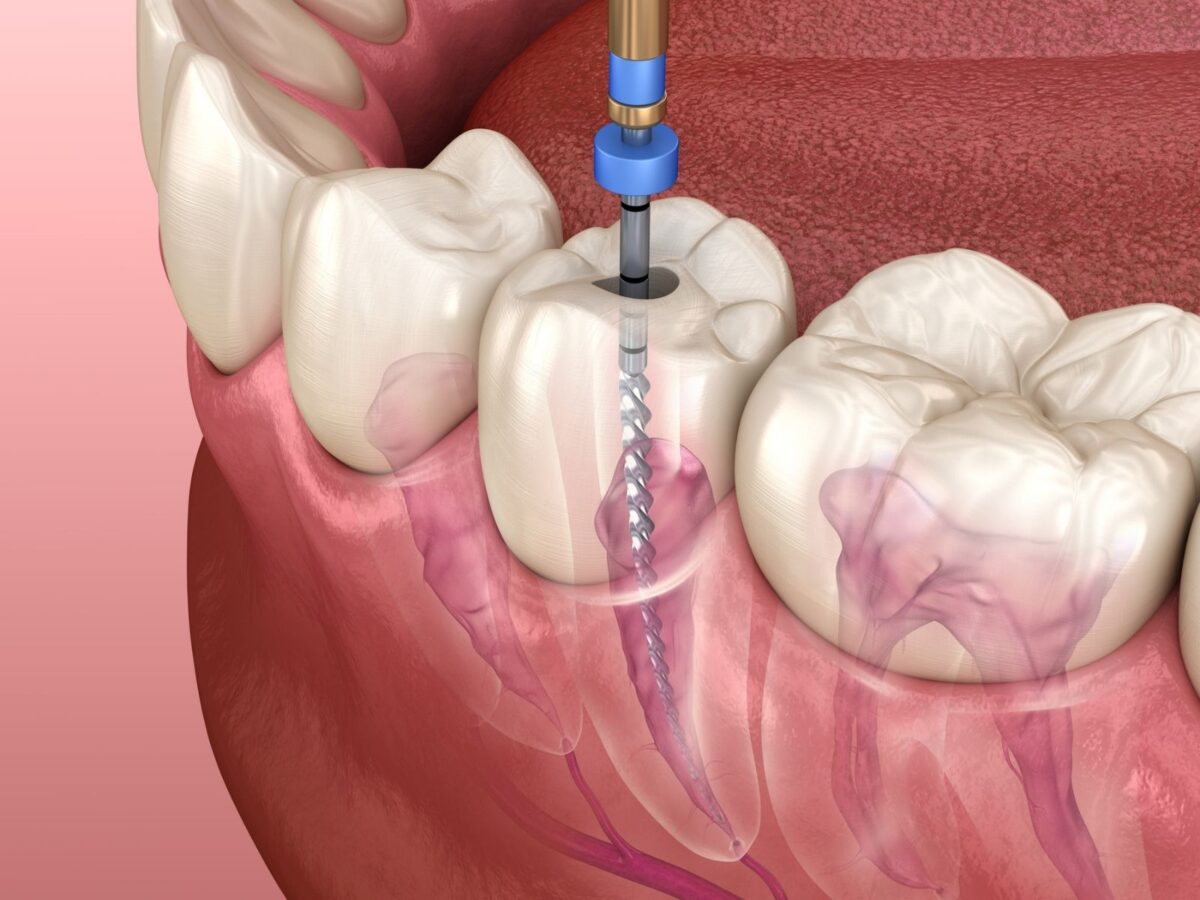Blog
Dental hygiene tips for healthy teeth & gums

5 Proven Ways To Prevent A Root Canal
Dental procedures can be time-consuming and painful. Most people often avoid treatments as they are expensive. If you prevent necessary procedures and do not maintain basic dental hygiene, you might get into a lot of trouble. A broken, chipped tooth where nerves are exposed requires root canal treatment. It can be due to grinding, biting complex objects, or a sports injury.
But how can it be prevented, and what steps are essential? This article will help you learn and understand necessary precautionary measures. You must follow preventive steps and follow a hygienic routine to have the perfect set of pearly teeth.
What is a Root Canal?
A root canal is a procedure to treat teeth where tooth pulp is infected. It can be due to a tooth cavity gone bad, sports injury, or damage to exposed nerve endings. The infected pulp must be removed using root canal treatment and covered with a cap to prevent further damage. But if it is helpful in treating specific conditions, why do some people want to avoid it?
The Root canal procedure is excruciating and expensive. Despite the latest technology, equipment, and minimally invasive methods, it is uncomfortable to endure. People often feel pain and need a long recovery time after the procedure.
How To Prevent a Root Canal?
Root canal treatment involves removing infected tooth pulp and damaged tissue. It can affect bone and surrounding tissues if you avoid the treatment for a longer interval. Here are some ways to maintain excellent oral hygiene and avoid the treatment. Let us take a look at these tips to prevent such painful treatments.
1. Brushing Teeth
The best way to maintain teeth and mouth hygiene is by brushing your teeth. Brushing teeth as first thing in the morning and last thing in the night must be your priority. You can avoid complicated treatments and diagnose any problem much earlier if you brush your teeth thoroughly twice a day.
If you prefer extra effort, you can brush your teeth after every meal. If not, try rinsing your mouth. It might not be as effective as brushing your teeth, but it will remove excess particles. It also maintains the mouth’s PH.
2. Flossing Daily
Flossing is a regular activity. You must do it on a daily basis instead of flossing just before dental visitations. If you floss after a long interval, your gums might bleed due to the presence of food particles between your teeth. If you only have a little time to floss daily, try it every alternate day for better results.
Flossing daily can avoid cavities, bleeding gums, and foul smell. It is essential to clean your teeth with floss after brushing, as the brush does not reach all corners of your mouth.
3. Regular Dental Appointments
Other than brushing and flossing, most people also avoid dental visitations. They feel they have no issues with their teeth, so no regular dentist visits are essential. But you must visit your dentist at least after every six months. You might feel no pain or discomfort, but the dentist can take a closer look at your teeth condition.
Dentist visitations can help you avoid cavities and prevent any infection from worsening. A dentist can see and treat conditions not visible from your eyes and can help you maintain hygiene. Catching issues early makes it easier to treat them and avoid complex treatments.
4. Wear a Mouth Guard
If you play any sports, you must consider wearing a mouth guard. Most chipped and broken teeth are the result of sports activities and careless management of after-hit treatment. You might save your tooth and prevent significant damage. It’s better to regret it later and wear a mouthguard for proper protection.
People who grind their teeth in sleep must also use a mouth guard. It can be a result of added stress on your jaw. You might have a root canal if you avoid mouth guarding and damage your teeth.
5. Watching Food, You Eat
Keeping a close eye on your diet is also essential to avoid any dental problems. Food is the first thing that goes into your mouth. Diet restrictions can also help you prevent root canals. For example, if you have cavities, you can treat them within a week and recover quickly by avoiding sugary foods and drinks.
Food that increases bacteria generation and slows recovery must be avoided. With the proper diet, you can maintain the perfect dental hygiene and prevent any dental complications. Here is a list of common foods that you must avoid:
- Carbonated drinks
- Alcohol, especially wine
- Sports drinks
- Soda and soft drinks (even sugar-free types)
- Citrus fruits and juices
- Tomatoes
- Vinegar
Conclusion
Your diet and routine are essential factors to prevent any complex treatment procedures. You must follow a hygienic routine, visit regular dentist treatments, and avoid food terrible for your teeth. Brushing and flossing your teeth daily are basic hygiene measures; you must ensure your teeth are in good condition.
You can rinse your mouth with water after every meal to maintain its PH. You also must resolve any dental issues by visiting your dentist as soon as possible. You can visit expert dentists at Victoria Dental Office TX and treat your teeth as they deserve.


